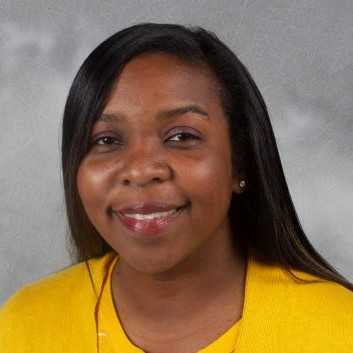GAP’s Tamiko MaGee-Rodgers, Associate Director for Recruitment and Strategic Initiatives, wrote an article in the Orlando Times about the Black community getting involved in Alzheimer’s disease clinical trials and the Bio-Hermes study at GAP-Net site, Charter Research.
At the Global Alzheimer’s Platform Foundation (GAP), our focus is speeding the delivery of innovative therapies to people living with Alzheimer’s disease. One of our primary concerns is increasing participation from people of color in Alzheimer’s-related research – especially since, according to the National Institute on Aging, Black Americans make up less than 10% of all clinical trial participants in active Alzheimer’s and related dementia research.
Florida is home to more than 9% of people in the U.S. living with Alzheimer’s disease. And research by Florida International University and UsAgainstAlzheimer’s shows that if nothing is done to address the racial disparities associated with Alzheimer’s, nearly 40% of those in the U.S. living with the disease will be either Black or Latinx by 2030.
In collaboration with Charter Research in Central Florida, we are working to address this issue directly. Charter Research is now enrolling volunteers with and without memory concerns in GAP’s innovative Bio-Hermes study.
Bio-Hermes is the first Alzheimer’s study to prioritize diversity in the study protocol. We have committed to enrolling at least 20% Black and Latinx study participants, nearly four times the national average in Alzheimer’s research, to help ensure that future Alzheimer’s assessment tools are sensitive and specific to all communities.
Bio-Hermes study participants will receive a no-cost PET scan – the very expensive imaging test for an Alzheimer’s diagnosis which is not often covered by insurance– which will provide volunteers with valuable information about their brain health. This is especially valuable for Black Americans, who are two to three times more likely than whites to develop Alzheimer’s in their lifetime yet 22 percent less likely than white to receive a timely Alzheimer’s diagnosis.
“It is essential to our efforts to find a cure for Alzheimer’s that ALL living with the disease are properly represented in clinical research,” said John Dwyer, President of GAP. “Since Alzheimer’s prevalence is higher amongst people of color, clinical trial enrollment needs to reflect this reality to ensure that future assessment tools, therapies, and treatments are safe and effective for all populations.”
Bio-Hermes is the first-ever platform study to compare the results of blood and digital biomarker tests — including digital, cognitive, retinal, and voice assessments — with the results of brain amyloid PET scans and traditional cognitive tests. GAP’s Bio-Hermes Study database will allow scientists to assess the performance of each biomarker, or combination of biomarkers, to prognosticate the accumulation of amyloid in the brain, a hallmark of Alzheimer’s. The use of biomarker tests in the assessment of Alzheimer’s could lead to earlier identification and detection of the progression of Alzheimer’s disease, improving clinical practice and allowing those living with the disease an opportunity to enroll in future clinical trials that will get us closer to a cure.
“Unfortunately, it’s not uncommon for people who live in Central Florida to know a friend or family member with Alzheimer’s disease. One way to honor them is to get involved in a research study,” said Dr. Jeffery Norton, Principal Investigator of Neurology at Charter Research. “The Bio-Hermes study is a great opportunity to participate in Alzheimer’s research with only three visits to the clinic.”
Since its founding in 2018, Charter Research has been leading clinical trials in Central Florida for a variety of neurological conditions and has gained notoriety as a premier Alzheimer’s research facility. Charter’s mission statement is simple: “Advance medicine for healthier lives [by valuing] the people who participate in studies.”
Volunteers for the Bio-Hermes study must be between 60 and 85 years old and have someone who can participate with them as a study partner. The study requires two visits with Charter staff and one visit to a local imaging site over the course of three months, with the potential for a follow-up phone call (if needed). Free transportation will be offered to all study participants.
Those interested in learning more about volunteering in the Bio-Hermes study and volunteering should call Charter Research at 352-775-1000.
The Rev. Al Sharpton has declared that “if people were excluding us from the clinical trials, we’d be marching.” He asks, “Why are we not marching to the clinical trials?” As disparities across various diseases increase around the country, it is more urgent than ever for Black Americans enroll en masse in clinical trials. So, let’s march and enroll in the Bio-Hermes study.
Dr. Tamiko MaGee-Rodgers is the associate director for recruitment and strategic initiatives at the Global Alzheimer’s Platform Foundation. She is a clinical research professional with over 13 years of experience leading clinical trials and ensuring protocol, regulatory, Standard Operating Procedures, and Good Clinical Practice compliance. The Global Alzheimer’s Platform Foundation is a patient-centric, non-profit organization dedicated to speeding the delivery of innovative therapies to those living with Alzheimer’s and Parkinson’s by reducing the time and cost of Alzheimer’s and Parkinson’s disease clinical trials.
Originally published in The Orlando Times, Vol. 44 No. 33.
